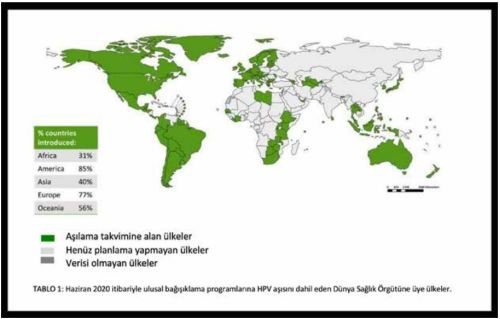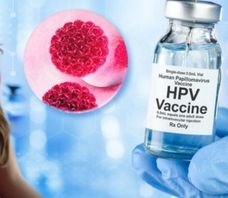* Photo: Canva
Click to read the article in Turkish
Ahead of International HPV Awareness Day on March 4, the İstanbul Chamber of Pharmacists has sent a file titled "The Fact of HPV and Importance of Vaccination" to the Ministry of Health and demanded that human papillomaviruses (HPV) vaccines, which prevent the HPV infection causing cervical cancer, be added to the routine vaccination schedule.
İstanbul Chamber of Pharmacists Chair Pınar Özcan has underlined that cervical cancer, after breast cancer, is the second most frequent cause of cancer-related deaths among women in the world.
Noting that cervical cancer is the 5th most common cancer among women at the ages of 15-44 in Turkey, pharmacist Özcan has said, "There are over 32 million girls aged 15 and over and women who are likely to have cervical cancer or who are in the risk group in Turkey. HPV is a big public health problem. The World Health Organization (WHO) recommends that girls aged 9-14 should be vaccinated against cervical cancer."
Against this backdrop, Pınar Özcan has recalled that HPV vaccine is a part of routine vaccination schedules in 107 countries of the world. The studies conducted in these countries, Özcan has underlined, have shown that the increase in the number of women who have received the HPV vaccine has led to a decrease in the incidence of cancers caused by HPV.
Accordingly, İstanbul Chamber of Pharmacists Chair Özcan has said:
Women in our country must also be protected from infections and cervical cancer caused by HPV through vaccination. We request that HPV vaccines which have been licensed by the Ministry of Health be included in the vaccination schedule in our country, considering public health and the country's economy.
HPV vaccination in the world

According to the information shared in the file sent by the İstanbul Chamber of Pharmacists to the Health Ministry, as of June 2022, 107 of 194 countries that are members of the WHO announced that they partly or fully included the HPV vaccine to their national immunization programs.
The WHO has set out to ensure that 90 percent of the target audience in 194 countries will be vaccinated by the year 2030 as part of the World Health Organization Cervical Cancer Elimination Strategy. (AÖ/SD)








